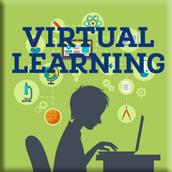1. Get to know your students and let them get to know you
Undoubtedly we know that relationship building is key. In fact, it is one of the most important components to building a bridge between a student's home life and academic life. It is always important to take the time to get to know each one of your students, and in turn, allow students the chance to know you. Teachers typically start the year off having students complete writing activities such as "All About Me". This is a great way to start to know who your students are, but remember it's important to stay connected with them throughout the year. Let them share good news with you, notice when they aren't having a good day, or when they're having a hard time understanding content being taught. Take the time to listen; but also take the time to let students see that you are more than just a teacher. Share the positive things going on in your life with them. And when things aren't going so great, you can share that with students without going into detail or without sharing specifics. After all, great relationships also consist of boundaries.
2. Establish rules and expectations for virtual learning
Speaking of boundaries, it's important that virtual classroom rules are established even with students are learning from home. Being proactive about setting norms and expectations for virtual etiquette will give your students as well as their parents insight into how you conduct your classroom. It is important that students know how to use tools on their laptops/chromebooks for muting themselves when they aren't the speaker. It's also important for teachers to set rules and expectations for use of the chat box during instruction. Students need to know your expectations for their video camera being turned on during your lesson. They also need to know what your expectations are about student dress/attire worn during virtual school hours. Finally, students need to know your rules about eating during class time as well. These rules and expectations are all extremely important. Another important point is that parents must work in partnership with the teacher as he/she works to establish these norms for virtual learning. If there is a rule or policy that you disagree with as a parent, schedule a meeting with the teacher outside of instructional time to discuss questions or concerns. It's definitely not advisable that a parent confront the teacher in the presence of students; this diminishes any boundaries or respect for authority that teacher is trying to create in their virtual classroom.
3. Connect the content to real world experiences
There's something to be said about lessons that are truly relatable. When you plan lessons that are not only timely but something that students have actually experienced, it makes the lesson much more meaningful. Before I presented at a recent staff Professional Development focused around technology and increased student engagement in math, I wanted to make the lesson resonate with staff. So a couple of days before I had to present, I went to a local grocery store and took a picture of some bell peppers that were in a bin. I then uploaded the picture to a google slide so that I could have staff write mathematical questions about what they noticed. My purpose for doing this was two-fold: 1. I wanted teachers to use the information provided in the picture to ask as many math questions as they could. 2. I wanted teachers to see how they could incorporate this idea into a lesson since everyone has shopped at this store at one time or another. Real world or real life experiences allow students to activate their prior knowledge which gives them a deeper understanding of the content.
4. Practice Self-Care
During this time in history, there is no way any of us haven't been impacted by what we see happening around us. With that being said, it is so important that you practice self-care. Take time to shut the computer down, turn off the cell phone, or turn the t.v. off the steady stream of news that you are constantly inundated with on a minute-by-minute basis. For me, I have to take time to just BREATHE, Meditate, and reflect on the blessings in my life. For some maybe you have calming apps such as "Calm" or "Relax Melodies" on your phone. For others, maybe you practice yoga techniques while balancing your Chakras. Whatever brings you peace, I encourage you to rely on those things (as long as those things don't cause harm to you or others). Also take time to be with people that you love dearly. While at times they may work your last and final nerve, you know that your world is made better because they are a part of it.
Under this week's Intentional Toolkit I share some articles about virtual learning; I also share a video about self-care. As always, I hope that you find these resources useful. Friends as we begin this journey into uncharted territory, remember to give yourself as well as others around you a little grace.. because after all, we are learning to use technology in ways we never have before. We are truly living through history and in the process, we are impacting the lives of young people...what will we want our legacy to be when students talk about us in the future? Until next time, go out there and be GREAT!




 RSS Feed
RSS Feed
